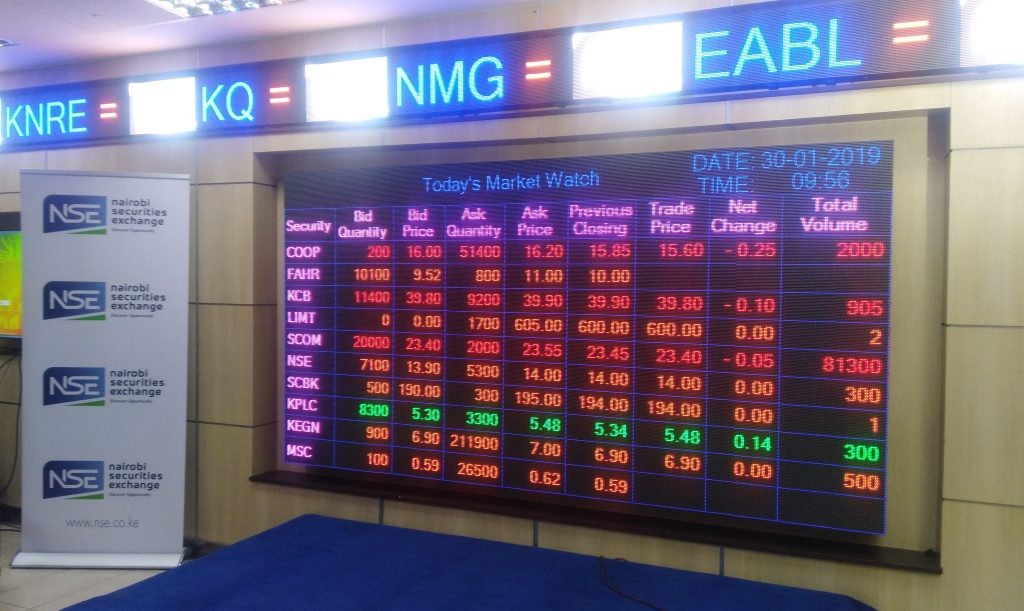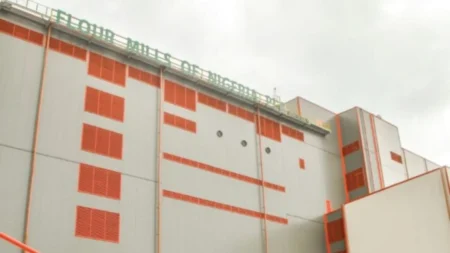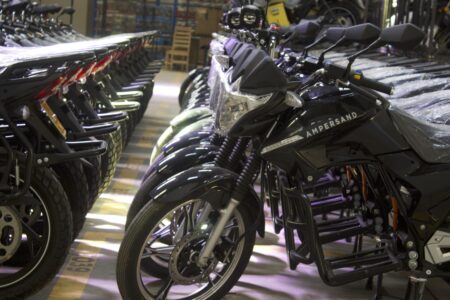After more than three years of waiting, the Nairobi Securities Exchange (NSE) has received regulatory approvals to proceed with the launch of the derivatives market.
This follows the successful conclusion of the Derivatives Market Pilot Test and subsequent submissions to the Capital Markets Authority (CMA) and the Central Bank of Kenya (CBK).
READ:Investors to commence derivatives trading at Nairobi bourse
NSE now sees the launch of the Derivatives Market as a significant milestone in the growth and deepening of the country’s’ capital markets and the wider Kenyan economy.
“Derivatives Markets provide new opportunities to investors, enabling them to better diversify their portfolios and allow for the efficient deployment of capital. Furthermore, through the Derivatives Market, investors will be able to form expectations about underlying assets in order to manage the price risks,” NSE Chief executive Geoffrey Odundo has noted.
This initiative makes the NSE the second African Exchange to offer exchange traded derivatives, further cementing its position as a leading financial hub and investment partner of choice.
The exchange expects to commence trading of futures contracts in July 2019.
“The Exchange sincerely thanks market participants for their invaluable efforts in making this milestone possible and looks forward to a successful launch of the Derivatives Market. The NSE PLC shareholders and the public are advised to exercise caution when dealing in the shares of the company,” Odundo said in a statement.
“Further information on the Derivatives Market and the envisaged launch will be communicated in due course,” he told investors.
The journey towards a derivatives market commenced in 2015, when NSE sought clearance from the regulators.
Derivatives are an investment tool whose value is derived from an underlying asset like bonds, commodities, currencies, interest rates, market indexes and stocks, based on the expected future price movement of the asset.
At its launch, investors will initially be offered single stock futures targeting five liquid stocks. These include KCB, Equity and Safaricom.
The Co-operative Bank of Kenya and Stanbic Bank have been licensed by CBK to handle clearing and settlement for the derivatives exchange.
The product will be a major boost to NSE’s liquidity where 65 listed firms are trading.
The Johannesburg Stock Exchange (JSE) is only bourse currently trading on derivatives in Sub-Saharan Africa.
NSE will act as the clearing house in the derivatives market structure. It has also created a complete trading structure which includes clearing agents, trading members (futures brokers), clients, a guarantee fund (to settle potential specified margin claims) and an investor protection fund.
Meanwhile, the bourse is preparing small companies to list on the exchange as it seeks to end a decade of drought. This is under its incubation programme dubbed ‘ibuka’, which translates to emerging.
READ ALSO:How NSE is preparing small companies for listing at the bourse
CMA Chief executive has however called on investors to not only look at listings but invest in other products available in the market.
“There are many ways to invest in the market including bonds and raising debt so it should not only be listing or trading in shares,” Muthaura said on the sideline of the Euromoney East Africa Conference 2019, held in Nairobi this week.
Last year, NSE lost 17 per cent on market capitalization as the bourse closed annual trading on a bear run, occasioned by a dip in stocks and withdrawal of investments by foreign shareholders.
The bourse closed the year with a total market value of Ksh2.1 trillion (US$20.7 billion) against Ksh2.5 trillion ($ 24.7billion) posted at the close of the previous year(2017), with more than a third of the listed firms reporting either profit drops, losses or issuing profit warnings.
READ:NSE dips as 2018 ends on a bear market territory











